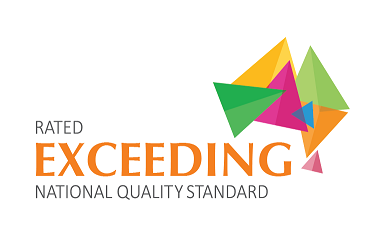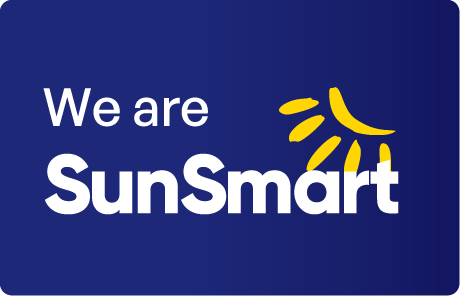Our Educational Program
The educational program includes a variety of open-ended, play-based experiences that will encourage your child to explore, investigate, and engage in a rich learning environment. We understand that every child develops and learns in unique ways and has unique learning dispositions, strengths, abilities and interests. The learning environment has been designed to inspire curiosity and engage with the natural world, with a meaningful balance of child-led learning and intentional teaching. We value our community partnerships and the educational outcomes extra curricular experiences provide. These experiences are implemented across the service when there can be rich connection by children to content that is age and developmentally appropriate.
What a play based learning program looks like at Bubup:
Emerging Interests:
We balance intentional teaching with a child-led emergent curriculum, responding to current events in society and children’s lives, and using these topical experiences as the catalyst for learning and discovery.
Music:
We use songs in our program not only as a tool in intentional music and movement group times but throughout the day as a means of communication.
Big Body Movement:
We use songs in our program not only as a tool in intentional music and movement group times but throughout the day as a means of communication.
Sustainability:
A focus on supporting children in building a respectful relationship with the natural environment around them aligns with our centre wide commitment to sustainability. Children actively engage in our sustainable practices throughout the day.
Indoor/Outdoor Program:
Our flexible environment which provides children access to indoor and outdoor spaces throughout the day allows children to regulate as they navigate the space and choose their learning experiences.
Flexible Routines:
We provide flexible routines for all children to support consistency and continuity between home and care as well as to allow for children’s choice.
Mealtimes:
Our mealtimes are structured and are treated as a valuable learning experience. Through progressive mealtimes with small groups, we support children to develop a healthy relationship with food and use this time to nurture our child-educator and child-peer relationships. At BWFCC, we support children to be confident and competent eaters guided by Ellyn Satter’s Division of Responsibility in Feeding.
Rest and Relaxation:
Access to sleeping mats and calm and relaxing spaces both inside and outside of each room supports children’s self-regulation and emotional wellbeing
Early Numeracy:
Through open ended learning experiences as well as through our daily routines, children can explore mathematical concepts such as volume, physics, sorting and classifying as they notice and discover the world around them.
Early Literacy:
We understand the importance of language development in the early years of literacy and we support this through having purposeful conversations, singing songs and reading age appropriate books.
Cultural Celebrations and Calendar Events:
Days of cultural, educational and environmental significance are acknowledged and celebrated in a manner that is respectful and inclusive of our diverse community, sustainable practices and our children’s varying ages and development. We apply a child centred lens to calendar events, ensuring that days of significance are led by children and driven by process rather than product.
All educators take an active role in developing, creating and documenting the educational program and children’s learning. The educational learning program of your child’s group is displayed in the learning environment and families are encouraged to contribute and share feedback.
STEAM
STEAM stands for science, technology, engineering, arts and maths.
We support children in investigating through authentic experiences paired with open-ended questions promoting STEAM concepts as key components of all aspects of our educational program.
Science: Many overarching concepts of science can be found throughout each educational program. We support children to investigate through experimentation as they explore natural scientific concepts such as change, physics, and health.
Technology: Technology in the early childhood setting refers to ways we can expand our knowledge beyond what our own senses can tell us. We use technology to reflection and share what we find out.
Engineering: We acknowledge that children are natural engineers, wanting to build things and design solutions. We provide age-appropriate spaces to support children as they hypothesise and problem solve.
Arts: We focus on process-based art which allows children to explore different ways of expressing themselves through varied forms of communication and creative channels.
Maths: Closely related to early numeracy, we acknowledge that key concepts are discovered in early childhood such as reasoning, sorting, classifying, and measuring.
By understanding the importance of these concepts, we authentically implement maths in each program throughout the day.
Sustainability
Taking care of our planet today for the families and children of tomorrow
Sustainability is a pivotal element that guides and leads Bubup’s programs and practices across all of the centre. Through ongoing staff training and with a commitment to innovative and creative solutions to a wide range of sustainability issues, Bubup is able to exceed the national standards that are required.
“The children are consistently engaged in learning projects, excursions and daily tasks that promoted their understanding of environmentally sustainable practices and respect for the environment.” (Page 19, ACECQA 2019 Assessment and Rating report).
Minimising our use of electricity, gas and water provide opportunities every day to model sustainable practices with the children. Solar panels on the roof provide the energy for our hot water system and we are currently exploring the feasibility of adding extra panels to
meet our energy needs. The use of fans, blinds and windows help to control the temperature and light requirements of each room and air conditioners are used if required. A bank of rainwater tanks collects and stores water from the roof and this is used for irrigation of the garden. The children, supported by the educators, are able to water areas of the garden such as pots and planter boxes that are scattered around the grounds.
Bubup operates a zero-food waste system; each day some of the kitchen scraps are collected for the children to make compost for our gardens and all other food waste is collected by a commercial food waste composting service. We actively engage in
eliminating single use plastics across the centre from the kitchen to the rooms through use of reusable food containers, eliminate packaging by making our own glue and paint where possible.
Recycled paper and card are used for play, art and craft activities. Each room has a two-bin system for recyclables and also landfill items. The use of loose part items, both natural and manufactured, are used for play which supports the children’s
learning, creativity, and problem solving as well as reducing the need for single use craft items. Special events such as Xmas, and Parents’ Day gifts are created being mindful of their environmental impact. Families are able to drop off recyclable items at the recycle
station at the front of the centre as well as cans and plastic milk bottles.
Families are also encouraged to participate in local and national environmental projects such as Clean Up Australia Day and community tree planting. Cleaning throughout the centre, is conducted using plant based, chemical free products, colour coded microfibre cloths and steam cleaning is used when required. The children are able to explore and
engage with the large outdoor play spaces that include cubby houses made from recycled wood plus garden beds and pots that grow a range of herbs, fruit trees, native grasses and local species of plants. This diverse range of plants are used for sensory experiences
and provide opportunities for the children to witness the wonder of the natural world and the passing of the seasons throughout the year. Bubup Womindjeka Family and Children’s Centre offers rich and authentic sustainability experiences for all of the children, families and staff ensuring they are taking care of the planet today for the children and families of tomorrow.
Bubup Bush
A significant component of the Bubup sustainability program is the unique opportunity presented to the children, by the Bubup Bush excursions. The program provides children with the opportunity to engage with the classical landscape of Australia, the bush.
We visit the community created bush garden at Lagoon Reserve, right next door to Bubup so we walk there, holding hands as we leave the centre. The children attend in groups of 4-6, one room at a time and are supervised by educators from their room with 1 educator
to 2 children so this is usually 2-3 adults, the kinders attend as a class. The visit is usually 1-2 hours.
The bush allows the children to encounter many adventures such as freely exploring the landscape, crunch through dry leaves, climb over logs and trees, view wildlife and enjoy the unique pleasure of being in an open and special place and doing so safely whilst
being supervised.
Road Safety
At Bubup Womindjeka Family and Children’s Centre we understand the importance of introducing road safety from an early age. Children are our most vulnerable road users. Their unpredictability and their intrinsic curiosity to explore their surroundings coupled with their limited understanding of safety and their developing understanding of sound, distance and speed puts them at risk around traffic. In 2021, we participated in the Road Safety Inquiry Project posing the question, “How can we make our children safe upon
arrival to and departure from Bubup?” This exciting initiative was part of the Starting Out Safely program and was designed
to expand our understanding of road safety education. As a result, we have embedded road safety education into our programs starting in the nursery rooms all the way through to our kinder.
We also provide information on road safety laws including use of car restraints and airbag safety as well as helmet tips to all families who utilise the services here at Bubup.
Being Equal / BWFCC Respectful Relationships
Children can be: Same and Different | Strong and Gentle
Fair and Friendly | Kind and Brave
We proudly participated in Star Health’s pilot program Being Equal – a promotion of gender equality and respectful relationships across all programs within the service. From this, we formed BWFCC’S Respectful Relationships, a commitment to advocating for all children to be anything, regardless of gender and ability.
Loose Parts
Loose parts are open ended materials that have unlimited play possibilities. They can be natural, such as leaves and stones or manufactured such as plastic caps and fabric samples. Loose parts provoke rich, meaningful play experiences as there is no specific way to use the items. Loose parts supports the development of imaginative play, promotes critical and creative
thinking, the creation of transient art pieces, and helps children to build a confident self identity as it is the child who directs the play and their creations.
Loose parts are gender neutral, suitable across all ages (being mindful of safety issues with the younger children) and are friendly to the planet. Items which may have found their way to land fill are re-purposed and gathered together at the end
of play to be enjoyed another day. The range of loose parts items provide rich sensory and language experiences for the children and build the necessary foundation for STEM (Science Technology Engineering and Maths) learning. Bubup has a loose parts library available to all rooms and staff receive ongoing training in the use of loose parts in promoting active learning.
Our Mealtime Expectations
We follow the Australian Guide to Healthy Eating and the Dietary Guidelines for Children to plan meals and snacks. We support children to be confident and competent eaters guided by Ellyn Satter’s Division of Responsibility in feeding. We use language that supports children to develop a healthy relationship with food.
Adults (Educators) are responsible for WHAT, WHEN & WHERE kids eat:
- We provide nutritious meals and snacks at regular times
- We support children with their age- appropriate mealtime flow
- We sit down with the children to eat and role model good table manners
- We offer familiar food alongside unfamiliar food
- We encourage children to use their five senses to explore food
Children are responsible for HOW MUCH they eat:
- We allow children to trust their bodies when eating. Some days children eat a lot, and other days not so much. They know how much their body needs for growth, learning & play.
- We let children choose what they would like to eat from the food we offer.
- We let children eat as little or as much as they feel their body needs.
- We do not pressure, prompt or encourage children to eat certain foods or amounts.
- We cater meals to suit your child’s individual dietary needs and food intolerances, but no supplementary meals will be provided
outside of the daily menu to support successful outcomes in our mealtime expectations.
Community engagement
We actively seek opportunities for children to be involved and engaged with the community. Our community connections are so important to the ethos of our centre. This includes regular outings as we visit services and facilities around Port Melbourne, including our local parks and participate in community based events.
In the Early Years Program, we have a weekly music and movement program, Hey Dee Ho. In our kindergarten program, we have a weekly sports and exercise program, Sports 4 Kinder.
Family contributions and communications
We highly value the mutual sharing of information, drawing on families unique perspectives, knowledge, experiences and expectations to guide our understanding of the child.
Families are warmly encouraged to share their culture, home language and home experiences with us. We support and encourage the interest and involvement of families in the learning program. There are opportunities for informal conversations at drop off and pick up times including how your child presented throughout the day, what learning experiences they engaged in and feedback about their daily routines such as meals, sleep and rest, toileting. Families are encouraged to arrange a time to meet with their child’ educators if they wish to discuss anything in relation to their child. Our educational team will provide
opportunities for interviews and a written record of their child’s interests, interactions, and developmental stages.
A reflection of the learning in your child’s group will be shared weekly. Daily photos are shared so you can see what learning experiences your child has engaged in throughout their day. A family memo is shared regularly including information about important announcements and happenings within the service.




